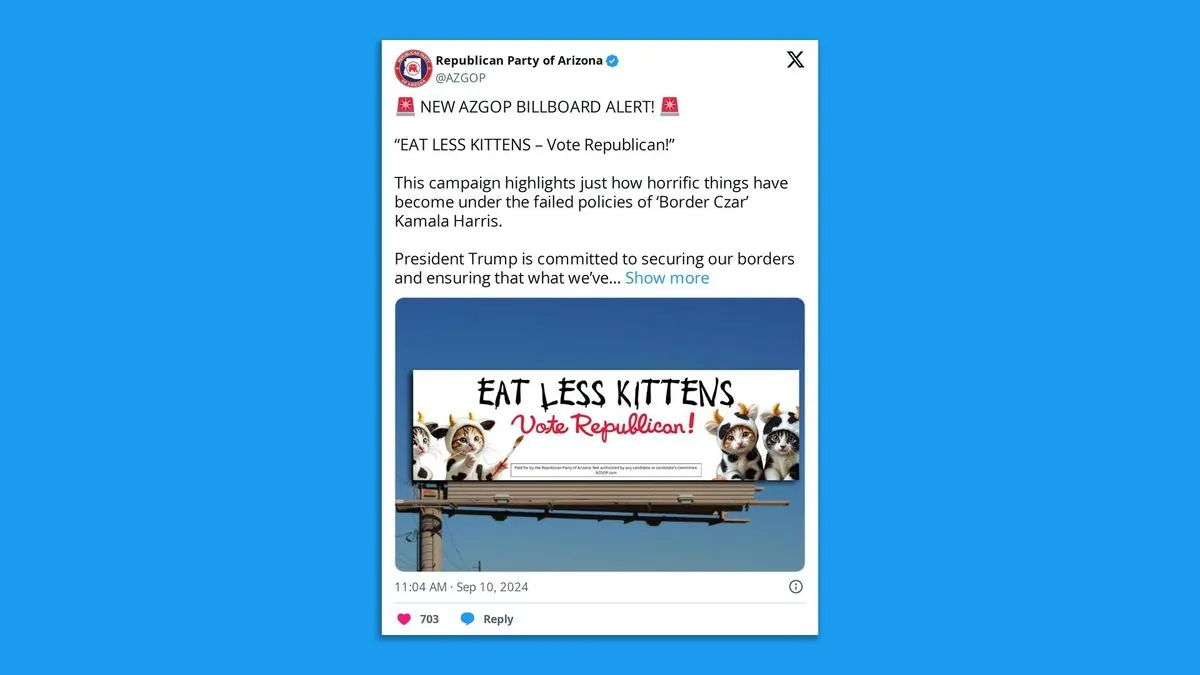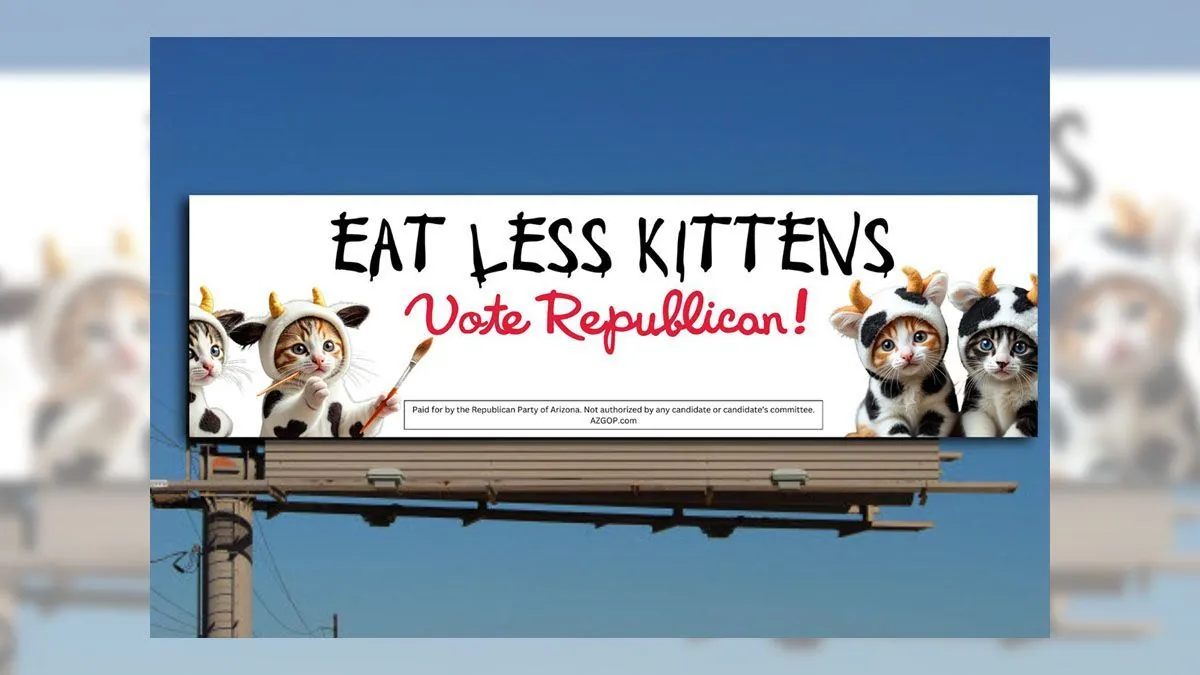Arizona GOP's Pet-Themed Billboards Stir Controversy Amid Immigration Debate
Arizona Republicans launch billboards referencing debunked claims of immigrants eating pets. The campaign, mimicking Chick-fil-A's style, draws criticism for spreading misinformation and xenophobia.

The Arizona Republican Party has ignited controversy with a new billboard campaign launched on March 12, 2024. The billboards, reminiscent of Chick-fil-A's iconic "Eat Mor Chikin" advertisements, feature cats in cow costumes with the message "EAT LESS KITTENS. Vote Republican!" This campaign, while attention-grabbing, has drawn criticism for its connection to unfounded claims about immigrants.
The billboards reference unsubstantiated allegations that Haitian immigrants in Springfield, Ohio, were consuming local pets. These claims, which originated from a social media post, have been amplified by prominent Republican figures, including presidential nominee Donald Trump. However, Springfield officials have categorically denied any credible reports of such incidents.
"I've seen people on television ... the people on television claimed my dog was taken and used for food."
This misinformation spread rapidly, with Senator JD Vance sharing related posts on X (formerly Twitter) on March 11. The following day, National Security Council spokesman John Kirby addressed the issue, labeling it as "dangerous" misinformation.

The Arizona GOP defended its campaign, stating it serves as a "humorous, but sobering reminder of the stakes involved in the fight for secure borders and safe communities." Party Chair Gina Swoboda linked the billboards to criticism of Vice President Kamala Harris' role in addressing unauthorized migration.
Critics, including Yolanda Bejarano, chair of Arizona's Democratic Party, have condemned the billboards as xenophobic and unserious. Robert Graham, a former Arizona GOP chair, questioned the effectiveness of the strategy, suggesting it may not resonate with voters focused on substantive issues.
This controversy unfolds against a backdrop of recent challenges for the Arizona Republican Party. The party has faced internal turmoil, including a leaked recording scandal earlier in 2024 that led to the resignation of its chairman. Additionally, the GOP has experienced significant electoral setbacks in Arizona, losing key state offices to Democratic candidates.
The billboard campaign highlights the ongoing debate surrounding immigration policy in the United States. While the Arizona GOP aims to draw attention to border security concerns, the use of unverified claims and provocative imagery has sparked discussions about the role of misinformation in political discourse.
As the 2024 election approaches, this incident underscores the complex interplay between political messaging, media coverage, and public perception. It also raises questions about the effectiveness of such controversial tactics in swaying voter opinion on critical issues like immigration and border security.


































